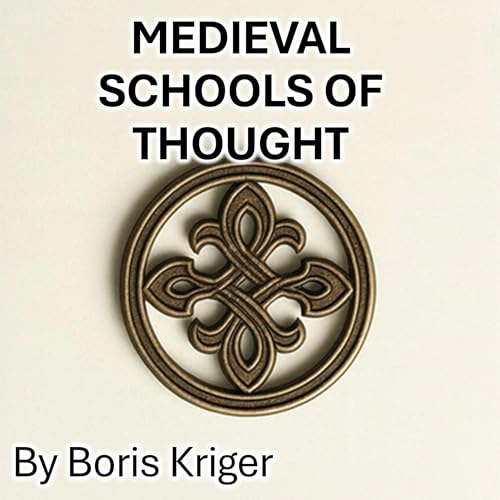
Medieval Schools of Thought
No se pudo agregar al carrito
Add to Cart failed.
Error al Agregar a Lista de Deseos.
Error al eliminar de la lista de deseos.
Error al añadir a tu biblioteca
Error al seguir el podcast
Error al dejar de seguir el podcast
Obtén 3 meses por US$0.99 al mes
 Exclusivo para miembros Prime: ¿Nuevo en Audible? Obtén 2 audiolibros gratis con tu prueba.
Exclusivo para miembros Prime: ¿Nuevo en Audible? Obtén 2 audiolibros gratis con tu prueba.
Compra ahora por $6.95
-
Narrado por:
-
Kathryn Roberts
-
De:
-
Boris Kriger
This book restores the Middle Ages to its true form—not as caricatured by the Enlightenment or romanticized by later centuries, but as it truly was: contradictory, luminous, and trembling between faith and reason. Here, the history of philosophy is not a dry sequence of doctrines, but a living journey of human thought—from dogma to freedom, from darkness to light, from monastery to university.
Each chapter opens with an imagined conversation with a key thinker or witness of the age. Some speak from within the medieval world itself—Augustine, Anselm, Thomas Aquinas, Eckhart, Ockham, Maimonides. Others, like Voltaire and Berdyaev, stand at its edges, reflecting upon it from the distance of irony or longing.
These dialogues do not ornament the narrative; they animate it. Through them, philosophy regains its human voice, and dogma turns once more into dialogue. Across these encounters, the book weaves together past and present, belief and inquiry, darkness and light. For the history of thought, like faith itself, forever moves in cycles—from illumination into shadow, and from shadow toward a new dawn.
©2025 Boris Kriger (P)2025 Boris Kriger

